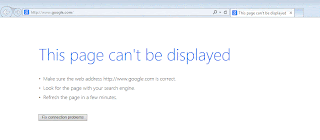I've been here in Uganda now for just over a month and I have just under a month left in my stay. Given that I've passed the halfway point I thought it might be good to provide a quick update on some of the things that I wrote about earlier...so here goes.
The Weather
When I arrived in Kampala it was 80 degrees (24 C for my metric friends). Most of the time the highs reached the mid-80s during the day and cooled down to about 65 degrees (16 C) at night. The sun rose at 7 a.m. and set at 7 p.m. and in between, nothing but dry dusty sunshine.
Then a week ago everything changed. It became overcast and cool - the temperature hovered at 65 degrees morning, noon, and night. We began to enter the second of two annual rainy seasons.
Suddenly I noticed Ugandans walking around in long pants, sweaters, coats and scarves, blowing into hot cups of tea...warming their hands. The standard morning greeting of "Hello! How are you?" was replaced with "Hello! Isn't it cold today?"
Having lived in Ireland for the past year and the Midwestern U.S. for most of my life, I'm still wearing short sleeves, happy that I can finally sleep at night now that the oppressive heat has ended. They look at me as though I've gone mad.
The Food Monitors
Every day at CDRN we eat lunch together in the training center. Eating together in a group reminds me of the best family dinners I had growing up (the ones where nobody argued or got yelled at). There's just one problem...I don't eat enough.
For Ugandans this is the main meal of the day and so they eat a full plate of food. For me, breakfast is the main meal...generally I'm not hungry when lunchtime rolls around. So I take a small plate of food, and for this I get teased mercilessly.
"What, you are taking only two beans today!?!"
"There are no more than three peas on your plate. Why do you not eat? Do you not like our food?"
"Are you trying to maintain your figure? You don't want to look like Ugandan women?"
and my personal favourite...
"You will go back to Ireland and they will think we have starved you."
My grandmother wasn't half as good at laying a food guilt trip on me as my colleagues at CDRN, and I consider her to have been at least a high ranking amateur. These people are professionals. Fair play.
The Internet & Technology Landscape
There are many problems that Uganda faces...poverty, unsafe drinking water, Aids, Malaria, and declining public services to name but a few. The Internet seems a luxury in this environment, but it shouldn't be. It should be the foundation for a new knowledge economy.
But there are two problems.
First, new computer equipment is expensive. It costs 1,350,000 shillings ($525 USD) for an Acer E series laptop that I can buy in the U.S. from Amazon for about $460. A new iPhone 5 will cost 2,299,999 shillings ($895 USD) in Uganda versus $699 in the U.S. Of course Uganda isn't alone in the premium price they pay for technology - that same iPhone in Ireland costs 679 euros or $910 dollars - but I suppose the point is why is the US getting a deal on technology when the rest of the world is not? It seems particularly unfair given the developing world can't afford U.S. prices let alone premium prices. The U.S. and Europe have subsidized food programs for Africa, they also have subsidized medicine programs...where are the ICT subsidies?
The second problem is that good Internet service is insanely expensive and bad Internet service is only marginally less expensive. Every morning, like Charlie Brown hoping he'll finally get to kick the football, I plug the network cable into my PC at CDRN and cross my fingers. Once in a while it's fine. Most days it's incredibly slow. Increasingly it's non-existent. Here's this morning's message...
It looks a lot like yesterday's message...and the day before's message.
And the crime is that Uganda Telecom Limited's (UTL) hamster powered Internet service is costing CDRN the equivalent of $150 USD per month.
Of course I'm only tortured by this for a few minutes each day. As soon as I confirm that the Internet is DOA as usual I fire up a 3G Wi-Fi hotspot on MTN's handy cellular network and return to the broadband age. It's costing me about 100,000 shillings ($40 USD) per month, which, as you can imagine, would be financially limiting when scaled to a 20 person network.
This situation makes me angry. Before coming to Uganda I had read that the country was doing a good job of technology infrastructure building and provision. It wasn't until I got here that I witnessed the reality. This is why Uganda is ranked 110th out of 144 countries for its ability to capitalize on the digital age. THIS is the "Digital Divide" because right now the only people who have access to the technological fast lane are the government, multi-national corporations, international NGOs, and the wealthy.
Access to current ICT should be a fundamental human right, just like safe drinking water and childhood education. The MDGs specify access to technology...why isn't this recognized and supported for Uganda?
OK jumping off my soapbox and recognizing the marginal bright side...the previously mentioned 3G cellular networks are available in most population centers. There are technology-based NGOs that fund and support technology capacity building (CIPESA in Uganda, SPIDER in Sweden and Indigo Trust in the UK are examples). There are also NGOs that fund technology insertion as part of a broader development project (US Aid, Irish Aid, UNDP, etc.). So I think the support is there to get the ball rolling. The government needs to step in as well, though, and provide better technology support and funding. Kenya is a great example of this with their eGov initiative and (iHub) technology incubators.
There is a way out of the digital doldrums - it is possible.
My "No Touching" Policy
After I posted the entry about safety and getting grabbed on Kampala's streets, my friends and family started calling and emailing, concerned I was going to end up a statistic on the evening news. It's OK - part of the touching is just a cultural difference between the US and Uganda. Physical contact is much more prevalent here. So while I'm not excusing the behaviour of the street kid who tried to steal my bag or the scruffy man who grabbed my arm and tried to lead me God knows where, I'm learning that when someone touches my arm or holds my hand it's not necessarily with malice aforethought.
Here in Uganda, acquaintances and colleagues hold hands. Earlier this week Moses took my hand and led me to his car. He's a driver that CDRN uses from time to time. I had asked him about the possibility of hiring him, and he just wanted to show me how great his car was. Nothing more. When I was in the city center with Joan (a colleague at CDRN) she held my hand as we crossed the street for protection purposes.
This is not how the US and Ireland treat business associates and so it makes me a little uncomfortable, but I'm thinking I need to get over myself. Human contact is a fundamental part of life. I like it that Ugandans are demonstrative to more than just family and good friends. So I've relaxed my No Touching policy here. When I get back to Ireland I'll revert back to my cultural norm, but while I'm here, as long as there's no harm intended, it's OK to take my hand.
Final Thoughts
And in closing, I'm getting a serious farmer tan. The safari is booked. And the fruit is still awesome. :-)



















